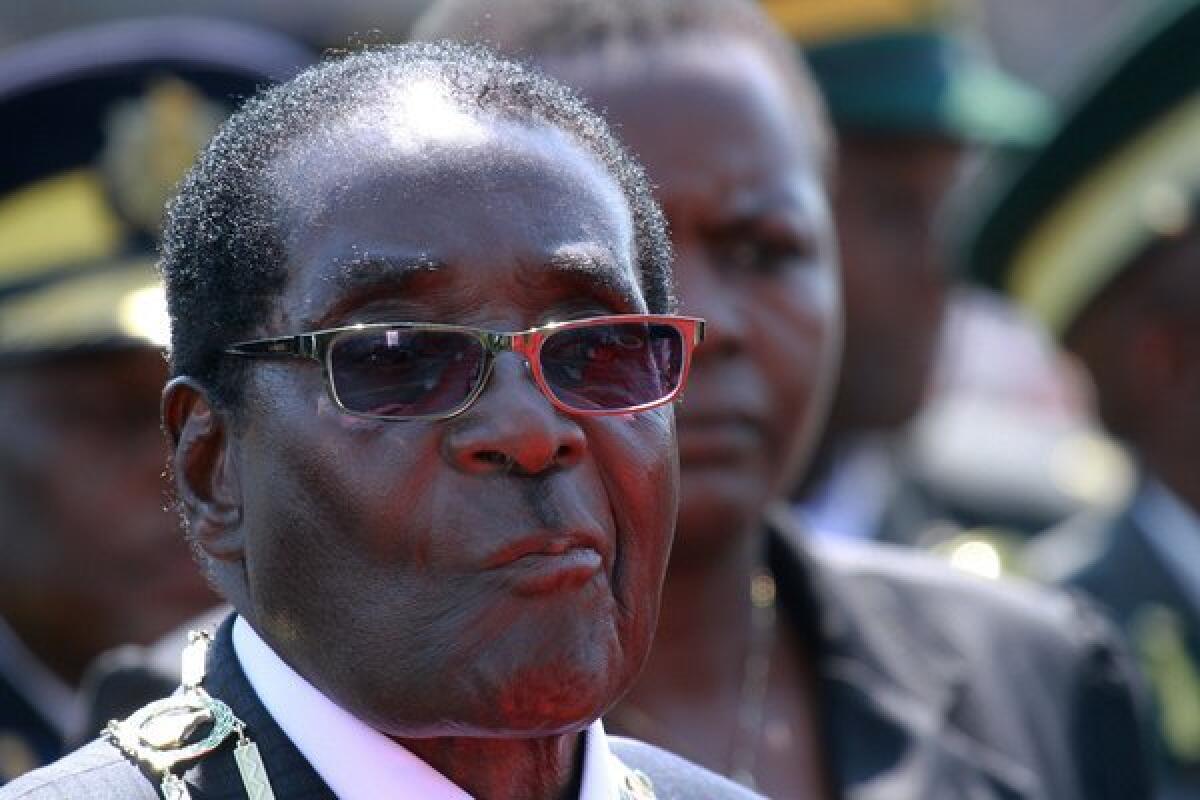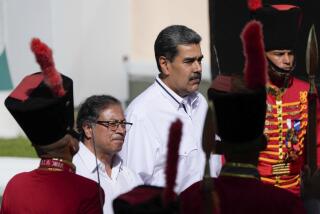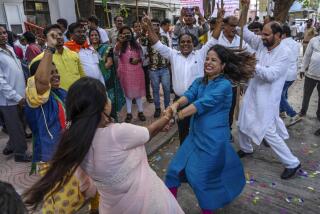President Mugabe of Zimbabwe tells defeated rivals: “Go hang”

JOHANNESBURG, South Africa — It was vintage Robert Mugabe. The Zimbabwean president, famous for his acerbic tongue, told defeated election rivals on Monday to commit suicide, declaring that they could “go hang.”
Mugabe and his ZANU-PF party won a controversial landslide vote in elections last month, though local observers declared the balloting seriously compromised and Western governments expressed concern about the many irregularities.
Despite the doubts, rival Morgan Tsvangirai of the Movement for Democratic Change won little support around the region. Mugabe’s party won enough seats in the parliament to change the constitution at will.
“Those who can’t stomach defeat can commit suicide if they wish. Even if they die, dogs will not sniff their carcasses,” Mugabe said in a speech marking Heroes’ Day, commemorating military veterans who fought against white minority rule, his first speech since the election.
“We will never go back on our victory. We don’t know what is retreating,” said Mugabe, 89, Africa’s oldest leader, who has been in power since Zimbabwe gained independence in 1980.
Mugabe’s party has promised to accelerate its policy of forcing foreign white-owned firms to surrender more than 50% of shares to black Zimbabweans.
Mugabe slammed Western critics who questioned whether the vote was free and fair.
“We are delivering democracy on a platter. We say take it or leave it, but the people have delivered democracy,” he said.
Tsvangirai and his MDC have claimed last month’s balloting was massively rigged because large numbers of people were turned away from polling booths. They also say the voters’ roll, which were released only two days before the election, was deeply flawed.
Mugabe romped home with 61% of the presidential election vote, according to official results, with Tsvangirai winning 35%. ZANU-PF won 160 seats in the 210 seat parliament.
The election was a major setback for Tsvangirai, who had won the first round of the 2008 election but narrowly failed to surpass the 50% mark needed to avoid a runoff. ZANU-PF supporters unleashed violence against his party’s organizers and activists and Tsvangirai pulled out, a decision he said was designed to avert more violence.
The regional body, the Southern African Development Community (SADC), brokered a peace deal that involved a unity government with Mugabe retaining power over the military and security establishment and Tsvangirai serving as prime minister.
Some critics say Tsvangirai should have turned his back on the deal.
SADC was supposed to ensure a road map was put in place to guarantee fair elections, including a free and fair media, independent judiciary and security sector reform designed to make military chiefs more accountable. But little was done, although a reform constitution limiting presidential terms passed in March.
Mugabe called an election, though the MDC protested that the vote would not be possibly be free and fair.
Mugabe’s party now has more than two-thirds of the seats in parliament, giving it power to reverse the progress made in the current constitution.
ALSO:
Britain threatens legal action over Gibraltar
Hungarian Nazi war crimes suspect dies before judgment
Slain businessman Neil Heywood’s family seeks damages in China murder case
Twitter: @latimesdixon
More to Read
Sign up for Essential California
The most important California stories and recommendations in your inbox every morning.
You may occasionally receive promotional content from the Los Angeles Times.










